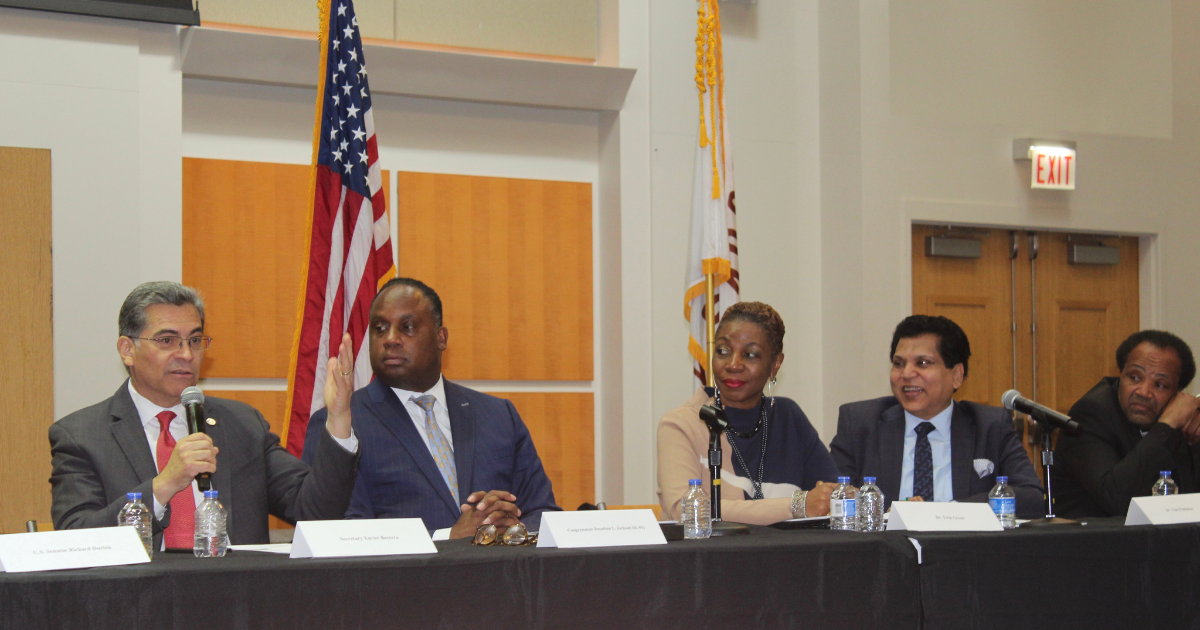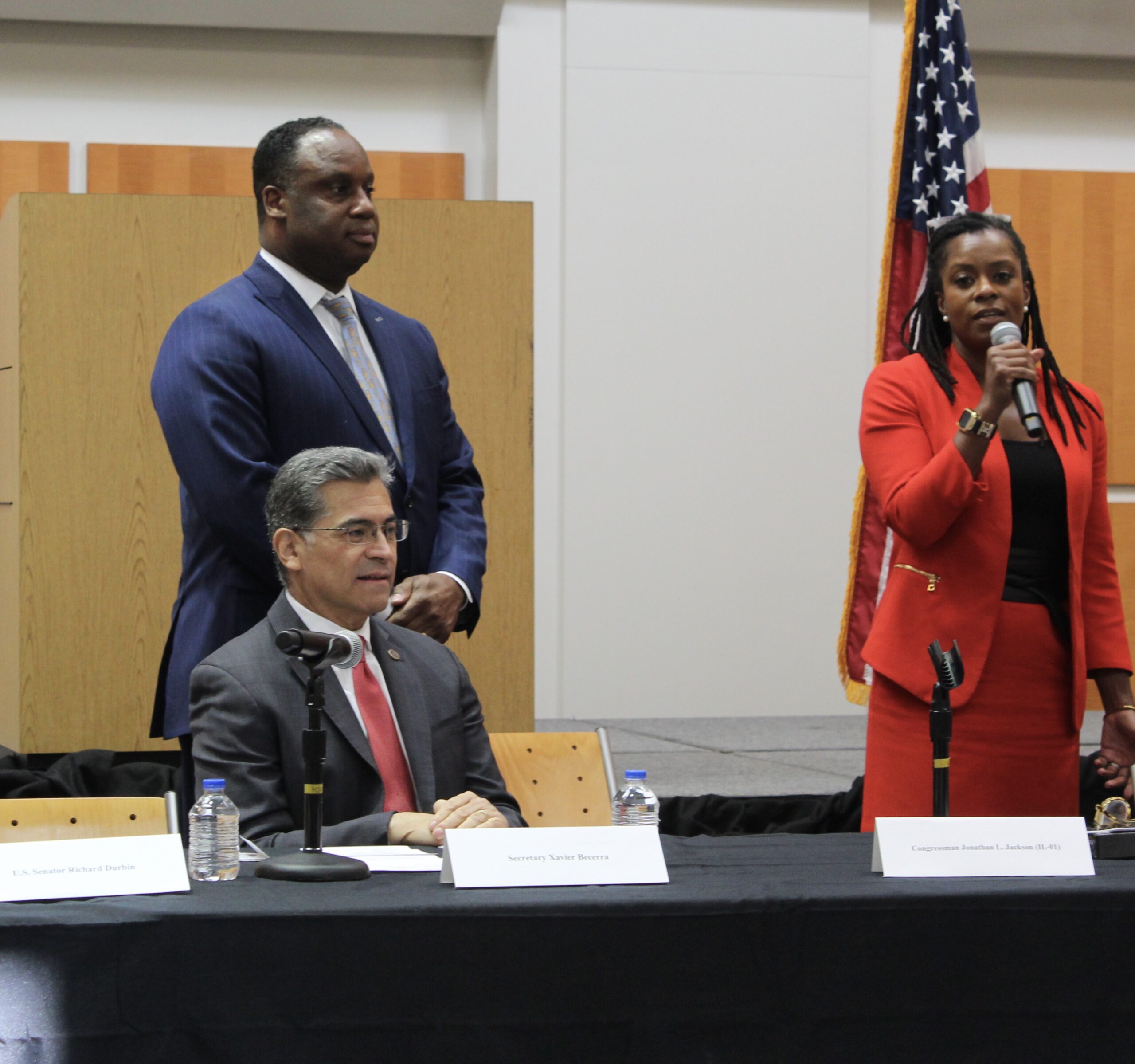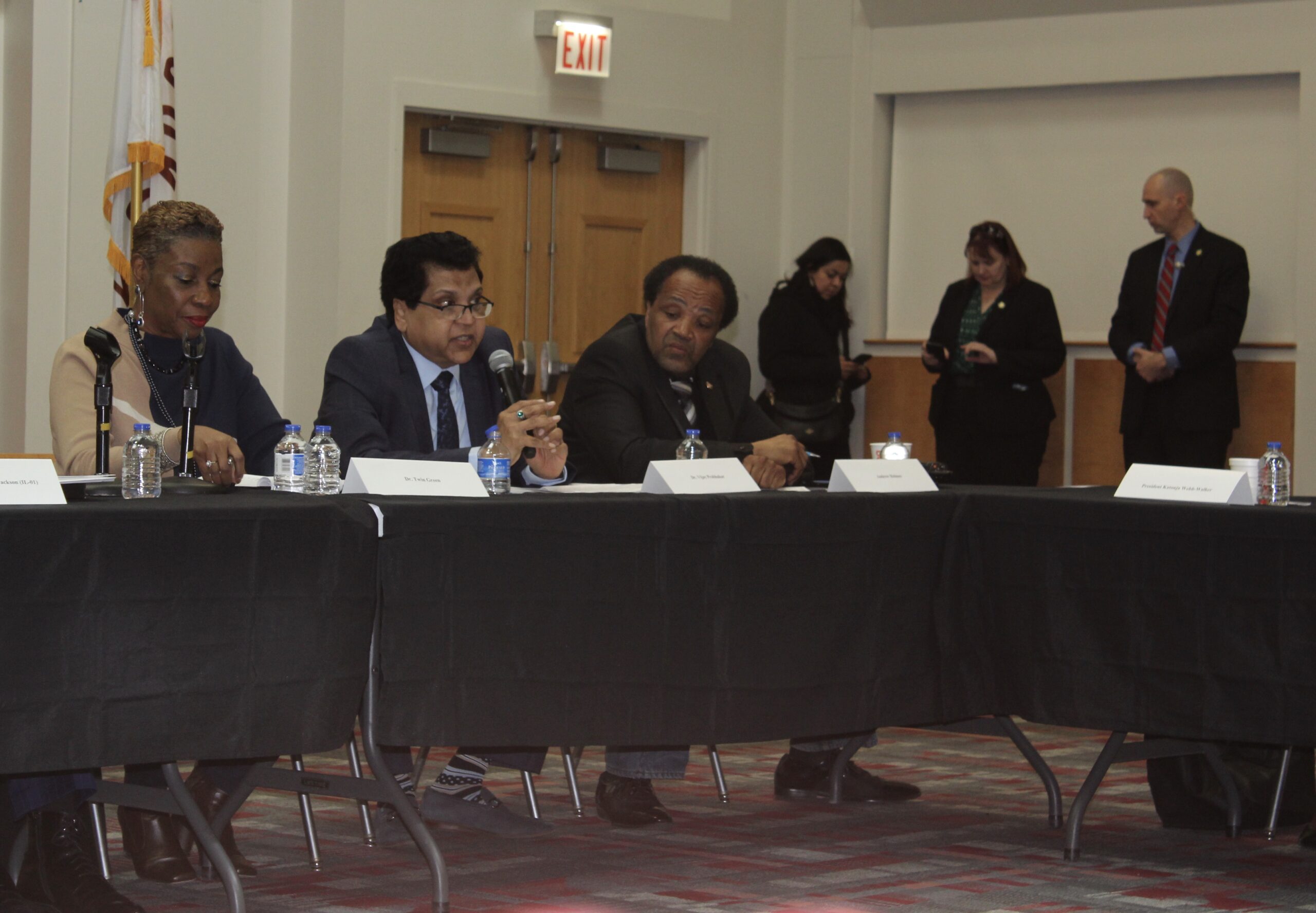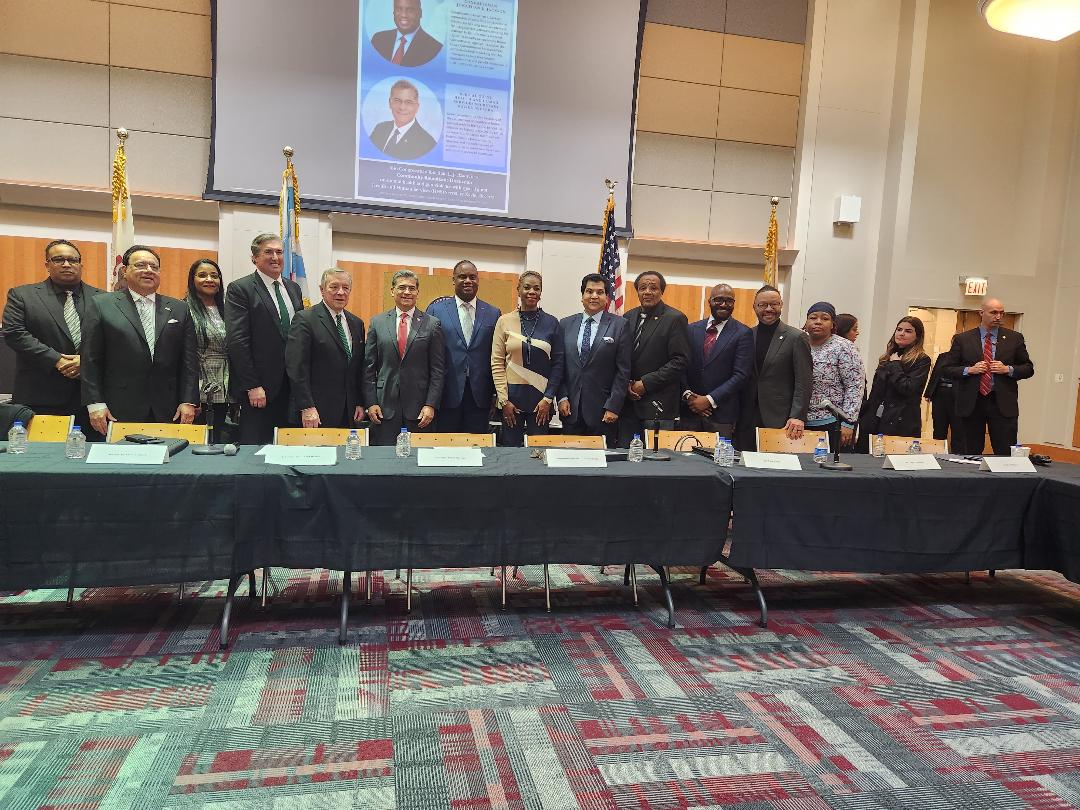Photo caption: REPRESENTATIVE JONATHAN JACKSON brings U.S. Secretary Xavier Becerra to Kennedy King College for a roundtable on the impact of gun violence, poverty, employment, health care, and food insecurities, especially important since two grocery stores have closed in Englewood in a year. Beccera called gun violence a health issue that must be addressed. (Photos by Chinta Strausberg)
To visually highlight the existence and effects poverty and gun violence have on the Englewood community, Representative Jonathan Jackson (D-IL) invited U.S. Health and Human Services Secretary Xavier Becerra and Senator Dick Durbin (D-IL) to a roundtable on Friday, March 17 at Kennedy King College to have them see the pain first hand.
Explaining his rationale for bringing the high-profile officials to the college, Jackson said it will take a holistic approach to reduce gun violence, poverty, lack of jobs, food insecurity, health care and the high cost of medicine, to solve these life-threatening issues.
Referring to his holistic approach to this major problem, Jackson said, “You have to pick up all four areas of the blanket at the same time: the chronic levels of violence and those who have the residue of trauma on them that have had loved ones whose crimes have not been solved.
“You have to deal with food insecurities because a hungry child, a hungry man or woman is a very unstable person. You have to deal with treating it,” he stated.
“You also have this illness where people don’t have access to primary care providers or to the medicine they need,” said Jackson. “People are making decisions between food and medicine, and we need to remedy that.”
He said diabetes is at an epidemic level and that the price of insulin has come down to $35, and he notes this “is one less issue that we have to deal with.”
Jackson also wanted Beccera to see that two grocery stores have closed in Englewood within a year, creating a food desert for residents.
Other officials at the roundtable included Dr. Katonja Webb-Walker, Interim President, Kennedy King College and Alderman Jeanette Taylor (20th).
Moderating the roundtable was Dr. Alia Ammar, clinical neuropsychologist with Neurobehavioral Associates and a social justice advocate. She explained the purpose of Friday’s event was for Jackson and Secretary Becerra to discuss mental health and gun control.
“We had ideas backed by policy, funding and President Biden has made this a central part of his agenda. It will be a boon to the mental health community,” said Ammar.
Asked what the central problem in Englewood is, Ammar said, “Violence is simply endemic within Englewood, which has one of the highest violence rates. Englewood has a 30-year discrepancy in life expectancy between Englewood and the Gold Coast of Chicago.
“There is no reason for there to be a 30-year discrepancy in your life expectation based on your zip code,” Ammar stated. “That can be corrected by reducing gun violence and attending to the mental health needs of the community.”
Walker said her college “tries to center itself as a resource for the community. We consider ourselves as a pillar of the community. We help our students not only on matters related to academics, career attainment and workforce development, but we are also here to offer wrap-around supportive services to help our students to be successful,” Walker told the Chicago Crusader.
“Many of our students come to us plagued by matters of housing and food insecurities and mental health concerns. We make sure that we create and provide resources to help mitigate some of those concerns that could potentially stand in between graduation and employment,” said Walker.
Panelist Dr. Vijay Prabhakar, founder of the Gandhi King Center for Non Violence in Englewood, said Jackson is the first congressman in the Midwest, perhaps in the nation, to have a member of President Biden’s Cabinet address a roundtable on mental health and gun violence.
He credited Becerra for acknowledging that gun violence is a health care issue and his pledge that his department will help in reducing gun violence under Biden’s administration.
Bishop Shirley Coleman, known as “The Mother of Englewood said, “Today’s meeting was solution based, and I heard some things that give hope that the work is continuing and that those in office see that it has to start with getting involved. That part has been omitted before.”
“It starts from the street level. That is going to be the solution,” she said.
Cheryl Blackmond, chief operating officer for the Chicago Peace Initiative, who has lived in Englewood for more than 50 years, had other concerns. “There are a lot of organizations that are not-for-profit that have set up shop in Englewood and have their paperwork, but have a hard time receiving their federal funding.
“It is amazing that other organizations come over to Englewood to offer services and receive funding before the ones who actually live in the community and don’t have an opportunity to help the individuals they have a relationship with,” Blackmond stated.
Blackmond is concerned that many people who come to Englewood with organizations get the funding, “but the crime is the same. I hope they can come up with a policy to make an easier transition for people who live here and have relationships with the residents to get funding. That would make it a healthier relationship, and it would bring more healing to the community.”









